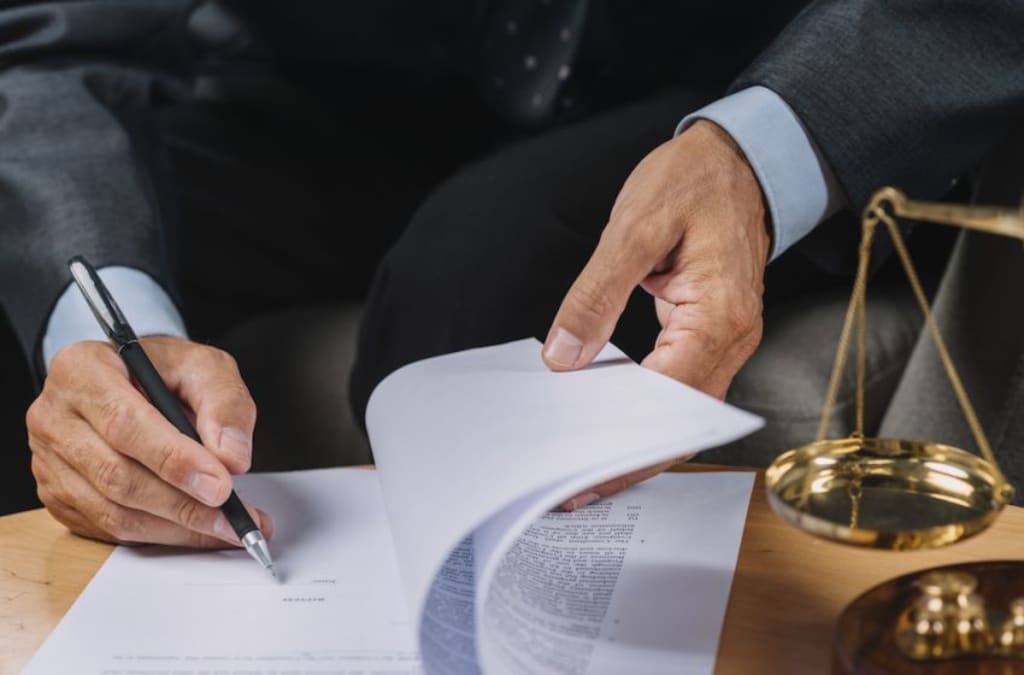All You Need To Know About Giving Power Of Attorney in the UAE
Introduction

In the United Arab Emirates (UAE), a Power of Attorney (POA) is an essential legal document that enables a person to appoint a representative to act on their behalf in various matters. Giving POA is a crucial decision that requires careful consideration, as it gives someone else the authority to decide on your behalf. It is essential to understand the legal requirements and implications of POA, both for the grantor and the grantee. This post will dive deep into everything you need to know about giving POA in the UAE.
Introduction to Power of Attorney in the UAE
Power of Attorney (POA) is a legal document that allows a person (the principal) to appoint another person (the agent or attorney-in-fact) to act on their behalf in various legal and financial matters. The POA is a widely used legal instrument in the UAE for multiple purposes, including real estate transactions, bank account management, and company formation.
Types of Power of Attorney documents
In the UAE, two main types of power of attorney documents can be granted.
- The first is a general power of attorney, which grants the attorney the broad authority to act on behalf of the grantor in various matters. It can include buying and selling property, making financial decisions, and even making healthcare decisions in certain circumstances.
- The second type of power of attorney is a special power of attorney. This document is more limited in scope and grants the attorney the authority to act on behalf of the grantor in specific, pre-defined matters. For example, a special power of attorney may be used to grant an attorney the authority to sign a property purchase contract on behalf of the grantor.
It's important to note that in the UAE, a public notary must notarize all powers of attorney. It helps ensure that the document is legally binding and enforceable. Additionally, it's recommended that you work with an experienced attorney who can help you draft the power of attorney document and ensure that it meets all legal requirements in the UAE. Before granting a power of attorney to someone, you must carefully consider who you trust to act on your behalf. It would be best to consider the scope of the authority you want to grant and whether a general or special power of attorney is more appropriate for your needs.
Who can grant Power of Attorney?
Power of Attorney is a legal document that empowers someone to act on your behalf. In the UAE, certain rules and regulations govern Power of Attorney, and one of the most important aspects to consider is who can grant it.
- In the UAE, any individual who is of sound mind and has reached the age of majority (21 years old) can grant Power of Attorney. It means that both UAE nationals and expatriates residing in the UAE can give Power of Attorney, as long as they meet the criteria.
- It's important to note that there are certain situations in which a person may not be able to grant Power of Attorney. For example, if a person has a mental illness or is under drugs or alcohol, they may not have the legal capacity to grant Power of Attorney. Additionally, if a person is declared legally incompetent by a court of law, they may be unable to give Power of Attorney.
- It's also important to consider who you appoint as your attorney. Your attorney should be someone you trust and with the necessary skills and experience to act on your behalf. You should also ensure that your attorney understands their legal responsibilities and obligations.
Steps to consider before giving Power of Attorney in the UAE
Giving Power of Attorney in the UAE is a relatively straightforward process that can be done through a notary public. Here are the steps to grant Power of Attorney in the UAE:
Step 1: Choose your agent:
The first step in granting Power of Attorney is to select an agent or attorney-in-fact. It is the person responsible for managing your affairs on your behalf. You can choose anyone you trust as your agent, whether a family member, friend or professional.
Step 2: Decide on the type of Power of Attorney:
There are two types of Power of Attorney in the UAE: limited and general. A limited Power of Attorney allows your agent to act on your behalf for a specific purpose. In contrast, a general Power of Attorney gives your agent broader powers to act on your behalf in various situations.
Step 3: Draft the Power of Attorney document:
Once you have chosen your agent and decided on the type of Power of Attorney, the next step is to draft the Power of Attorney document. You can do this by yourself or with the help of a lawyer. The document should clearly state the scope of the agent's powers and the duration of the Power of Attorney.
Step 4: Sign the document:
After the document is drafted, you must sign it in the presence of a notary public, lawyer, or at the Dubai Courts. Your agent will also need to sign the document.
Step 5: Register the Power of Attorney:
The final step is registering the Power of Attorney with the relevant authorities. It is an important step, as some institutions may need to recognise an unregistered Power of Attorney. The registration process varies depending on the jurisdiction and the type of Power of Attorney.
Common mistakes to avoid when giving Power of Attorney in the UAE
Giving Power of Attorney is an important decision, and you must ensure that you are making the right choice. Individuals make a few common mistakes when granting Power of Attorney that can have serious consequences.
- The first mistake to avoid is granting Power of Attorney to someone untrustworthy. Choosing someone with a good reputation and who you can trust to act in your best interests is crucial. It is especially true if you are granting a general Power of Attorney, which gives the person you appoint broad powers to act on your behalf.
- Another mistake to avoid is needing to be clearer about the scope of the Power of Attorney. It is essential to be specific about what powers you are granting and what limits you are putting in place. For example, if you only want the person to act on your behalf for a specific transaction, ensure this is clear in the documentation.
- Ensuring that the Power of Attorney is properly executed is also vital. In the UAE, a Power of Attorney must be signed before a notary public and two witnesses. Failing to follow these procedures could render the Power of Attorney invalid.
- Finally, reviewing your Power of Attorney regularly is essential to ensure that it still reflects your wishes. You may need to revoke or amend the Power of Attorney if your circumstances change.
- By avoiding these common mistakes, you can ensure that your Power of Attorney is effective and provides the protection and peace of mind you need.
Giving power of attorney in the UAE is a serious decision that should not be taken lightly. It is essential to understand the legal implications and responsibilities involved fully. Before granting power of attorney, seeking professional legal advice at Notary Public Dubai and ensuring that all relevant documentation is in order is recommended. It will help to avoid any potential issues or disputes that may arise in the future. Choosing the right agent, such as Notary Public Dubai, to act on your behalf is crucial to ensure your interests are well represented and protected.






Comments
There are no comments for this story
Be the first to respond and start the conversation.